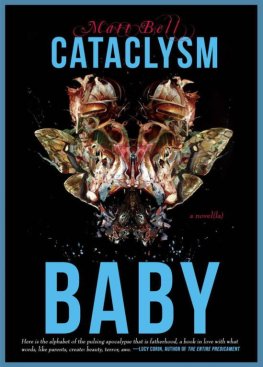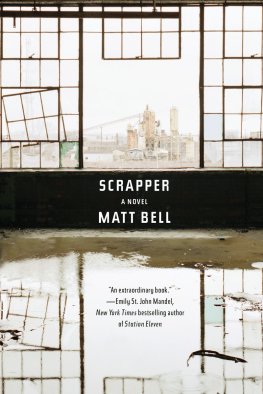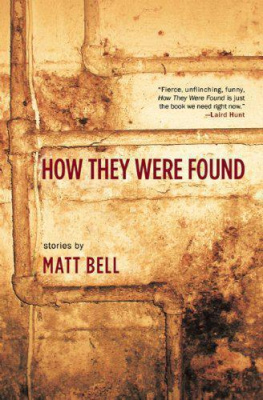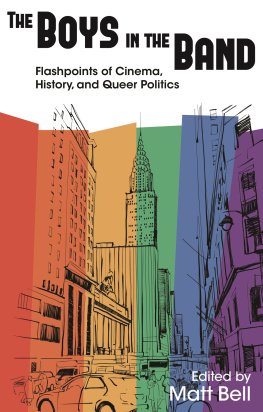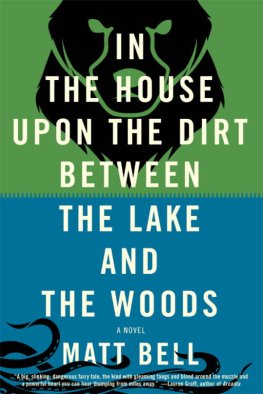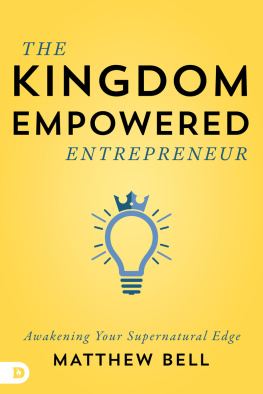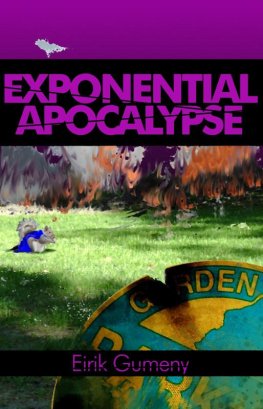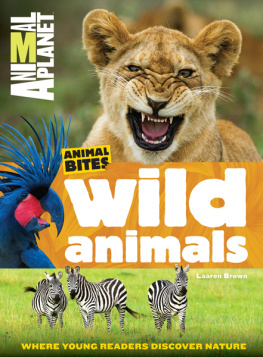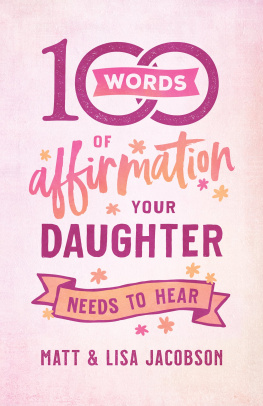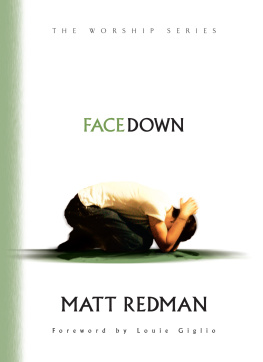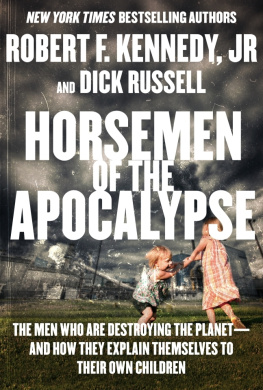CATACLYSM BABY
By Matt Bell
For my parents,
who survived five cataclysms of their own
And every living substance was destroyed which was upon the face of the ground, both man, and cattle, and the creeping thing, and the fowl of the heaven; and they were destroyed from the earth.
Genesis 7:23, KJV
He knew only that the child was his warrant. He said: If he is not the word of God God never spoke.
Cormac McCarthy,
The RoadAbelard, Abraham, Absalom
This smoldered cigar, last of a box of twenty, bought to celebrate happier times, now smoked to keep away the smell of our unwashed skin, of our slipping flesh, of our baby grown in my wifes belly, the submerged sign of a prophecy burning, stretching taut her hard bulge: All hair, just like the others, gone wrong again.
Fists of black hail fall from the cloudless sky and spatter the house, streak the skin of our walls, break windows above broken beds. The birth-room fills with air the texture of mud, with black birds forgetting how to fly, these crows and vultures waiting to make a nest of our child, and still I focus, keep my eyes on shattered glass, on my wifes pelvis tilting toward sunlight, toward sun turned the color of babys first stool, then the color of blood.
Then the blood, flowing between my wifes legs.
Hopeful cigar smoked, held between loose teeth, I say, Push. I say, Push right now.
And then it comes, becomes: A baby boy, born just like the others. Hair on cheeks, on forehead, on lips and tongue. Inverse of our own nakedness. Shame in an equal and opposite amount.
For our baby, a name chosen from a book of names. Each name exhausted one after another, a sequenced failure. I hook a finger into our babys tiny mouth and pull out hair, hairball. From furred windpipe. From matted esophagus.
Only my wife cries. Only the birds caw, flap their wings. Only again a howl of spoor, cigar sputter.
Pull, my wife says. Pull.
As if I could ever pull enough. As if I could ever clear the lungs of this fur. As if I could clear the stomach. As if I could clear the heart, its chambers full, clenched, wrong for what harrowed world awaits. Pull, she says. Pull. Pull. Pull. And what coward I would be to stop.
The older was the first to show us the scars, the archeology of her sister-scribed history, hard-written by their cutting, their stabbing, their sawing. The younger better hid her sisters handiwork, bore well the bands of reddened flesh and puckered scars beneath shirt, beneath sleeve, beneath shorts and underwear.
Even in the bath we barely noticed.
Even when the younger found trouble standing, even then we refused to believe.
Always the younger had limped, we argued. Always she had struggled to balance. Always her ears had been notched, her fingers a crooked nine.
What trust we had in the older then! What light touch she had, what blinding perfect smile made to answer our questions!
It had taken the youngers retribution to reveal the olders now-avenged crime, took the continuing destruction of that first body for us to discover the slower attrition of the second, and so afterward what right to anger did we have toward the younger, even at the shocking sight of the diminished older, our beloved eldest?
Perhaps none, we decided. Perhaps girls will be girls, no matter what we parents say.
And what else to do next, but let them work this out themselves?
To support their interests, we buy stocks of whetstones, of wood blocks filled with meat knives, of blister-packaged scissors, until at last our house is pregnant with the voices of children playing, craving only to get nearer each other, to have the other close at hand: Tag, youre it, then, Duck, duck, goose! The older leads these games, a born teacher, but it is the younger who best exploits their rules. Every evening their screaming laughter cuts through our locked bedroom door, until one night we hear only the voice of the younger, playing all alone.
Ring around the rosie, she sings, skipping through the house, calling out our names, our titlesyelling mother up the stairs, shouting father outside our door.
We all fall down, she sings, throwing her skinny bones against the bolts.
We all fall down together!
And then: the creak of the doorframe, the give of the lock, the tenuous grace of a chain, pulled short.
The doctors promised twins but delivered only one baby from my wifes pummeled womb, her troubled cavity. First the push, push, then the blood, then my mistake-toothed firstborn gnashing in the nurses arms: chubby, too chubby, too covered in mothers gore.
And then my wife continuing to scream.
And then the doctors begging her to stop.
And then what came next, what loose hair, what loose skin, what loose son or daughter, what delta of destruction flowing: my eyes, my wifes nose, swimming small and recognizable in the flotsamand then what once-plump arms, what legs covered in bite marks, such expired flesh taken clean off soft baby bones.
In the nursery, our son cried sleepless, sucked frozen pacifiers, pulled at his ears with his fingers, and from behind the glass between us I watched helpless as he chewed his blanket, as he choked past his pillows stuffing, unsatisfied.
At home, it is my wife who cries, while our firstborn sucks her tit dry, while his rows of teeth puncture her skin, pock-mark her areola. And how to respond when she complains of his always-hunger, when in an empty voice she begs me to allow the bottle instead?
But look at our son, I say.
Look how tall hes grown. Look how strong.
Look how he walks, only a month old.
Look how he lifts the icebox lid, how he opens the packaging with his teeth.
Look at his mouth, stained again a ring of red, just like the day he was born.
What month of dark mornings followed? What spring or fall, what remade season of locusts and black flies besetting our town, flown in on thickening air and sickening smell? And there, in the middle of its days, appears this chrysalis, this cocoon, this child-shaped bundle found wrapped in our morning sheets, tangled in the space where our toddling daughter once slept, dream-thrashed and nightmare-ridden as she clung to our skin, our heat.
A chrysalis? I ask my wife. A cocoon?
Whats the difference, she says, when its your child inside, when its your caterpillar?
We vow to keep it close, to sleep beside it until it ruptures, until what cocoons are for: until she emerges, no longer a child.
To cradle my pupa in my arms. To rock it in the rocking chair. To wait and hope, and at last to see the new shape pressed urgent against the inner skin of the chitinand then to crack wide the chrysalis with one hand, to with the other force my daughter free.
To behold the dripping wings, the glistening thorax; the changed head, the new mouth.
I open the nursery window and let the room fill with locusts and flies, those other black wings, other black legs, other black mouths bent on devouring all they can catch: Only me, only what flaking skin I have left. Only my daughters fresh wings, her span of translucent amber flapping free the scent of molt dust, of moth smoke.
And then the hairy touch of her legs on my legs, on my hips, on my chest; then the click of her mandibles, clipping locusts from my ears, knocking flies from my lips and eyes.
And then my wife and I at the nursery window, watching her leave. Watching her join the towns other golden children, together flying a sky clouded shut. Keeping us safe, at least until the locusts run out. Until the flies are gone. Until the trees and grass and shrubs are empty of leaf and branch.

